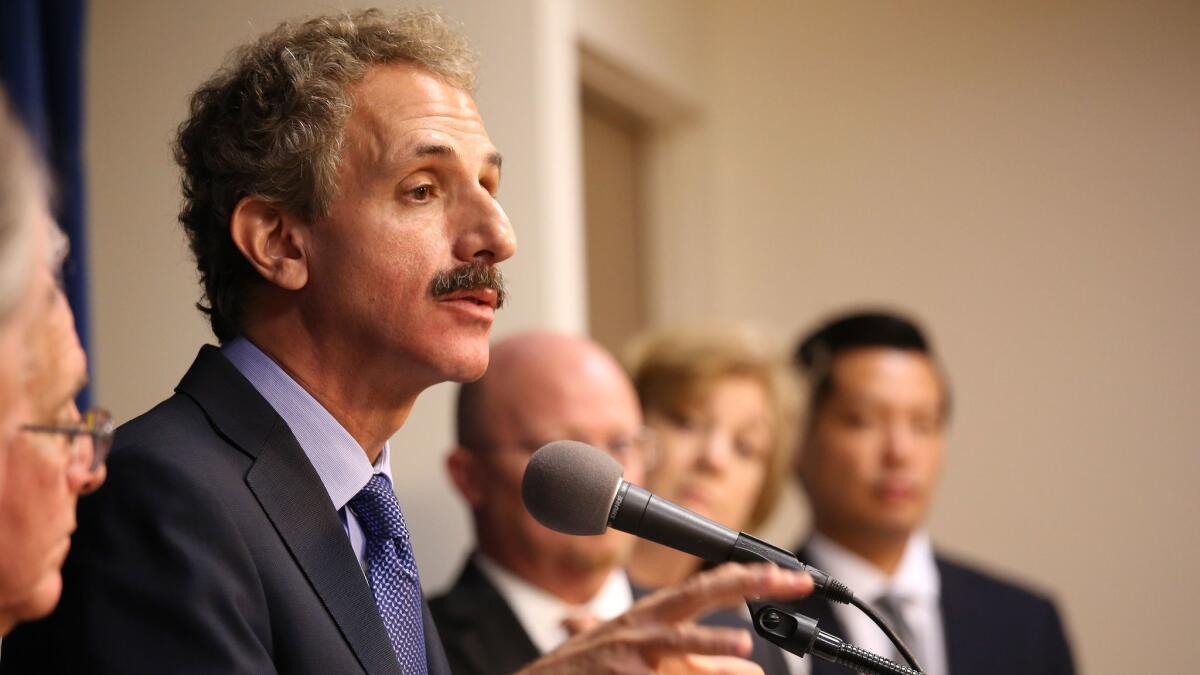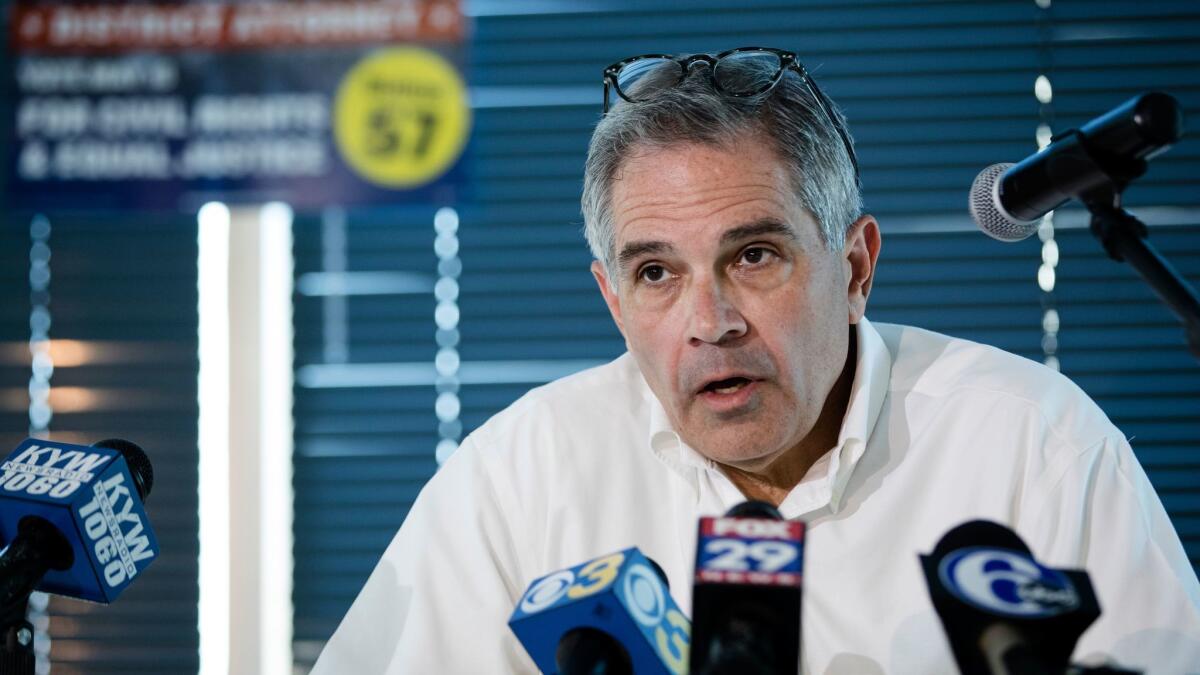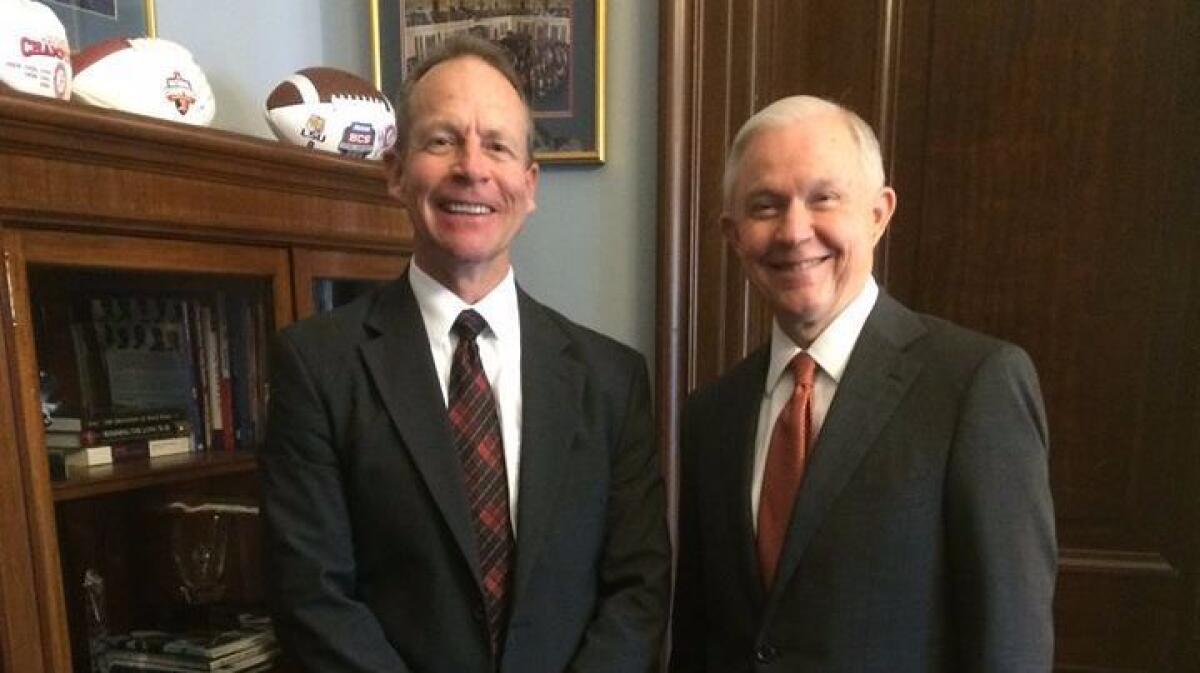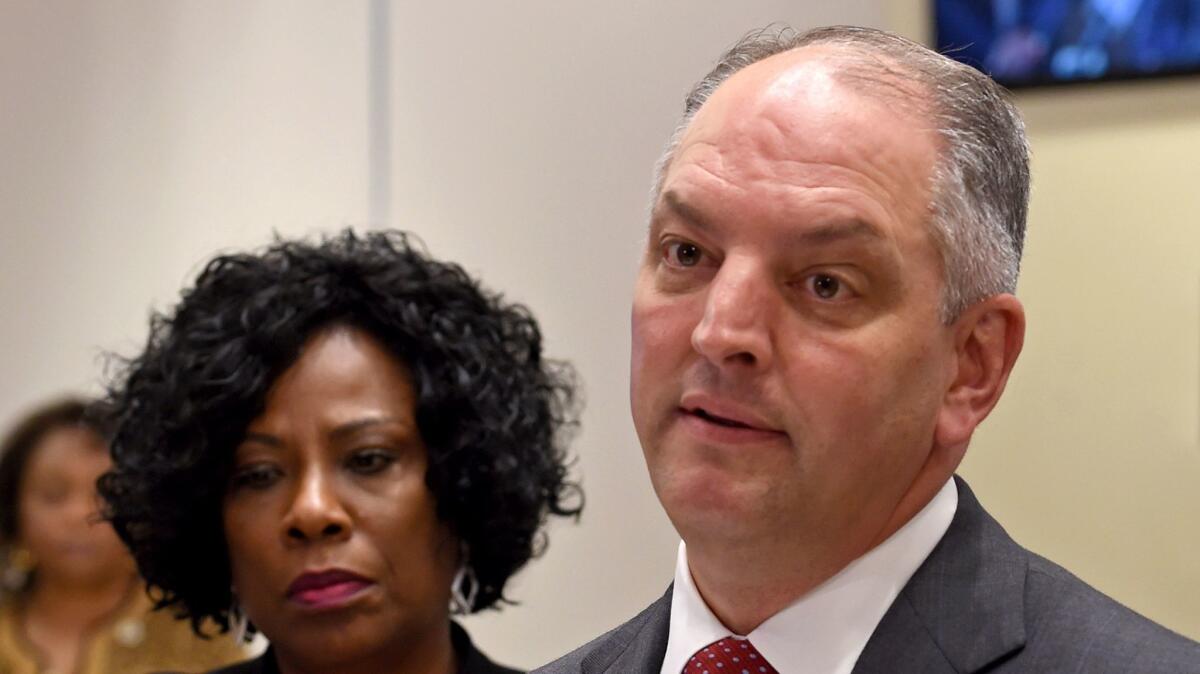Atty. Gen. Jeff Sessions wants to get tough on crime. These people think he’s got it all wrong
- Share via
Atty. Gen.
“Every one of our citizens, no matter who they are or where they live, has the right to be safe in their homes and communities from the scourge of criminal gangs, rapists, carjackers and drug dealers,” Sessions said in an address to law enforcement officials in Memphis, Tenn., last month.
In his view, imprisoning more criminals would make families safer, and fewer people would break the law if there were more severe punishments for crimes such as drug offenses.
In a recent memo to federal prosecutors, Sessions instructed them to pursue the harshest punishments legally allowed, a reversal of an Obama-era move giving federal lawyers more leeway to reserve such prosecutions for repeat offenders and people who had committed the worst of crimes.
Department of Justice officials hope the changes at the federal level — where a sliver of crimes across the country is prosecuted — will trickle down to a similar approach to crime in states.
But civil rights groups have contested the approach, many legislators have said it goes against trends in criminal justice reform, and dozens of state prosecutors and judges have protested the attorney general’s move.
Sessions, meanwhile, contends that his critics are misrepresenting his efforts. “We are not talking about low-level offenders or recreational drug users here,” he said in Memphis.
Here are some of the challenges Sessions faces:

Dozens of local prosecutors have spoken out
Denver Dist. Atty. Beth McCann is one of dozens of local prosecutors who have expressed disappointment at the new direction for federal prosecution of drug crimes. The former Democratic state lawmaker said Sessions has no direct impact on her office.
“I don’t particularly care for mandatory sentences.… I don’t think we’ve seen that that has worked,” McCann said. “I think with a different approach we can actually provide more public safety through a more enlightened view on prevention as well as prosecution.”
McCann said she aims to prevent recidivism rates with lower-level drug offenders through prevention and treatment programs. “We try to focus on other kinds of options rather than just putting people in jail,” she said.
In May, she joined a bipartisan group of more than two dozen current attorneys general and district attorneys to write an open letter castigating Sessions’ new directive.
“Although there are no certain benefits to the newly announced policy, there are definitive and significant costs. The increased use of mandatory minimum sentences will necessarily expand the federal prison population and inflate federal spending on incarceration,” they wrote in the letter.
The group included Los Angeles City Atty. Mike Feuer, District of Columbia Atty. Gen. Karl Racine and Manhattan Dist. Atty. Cyrus R. Vance Jr.
“There’s a push for this charge-and-pursue-whatever-you-can-prove approach federally now,” said Miriam Krinsky, a former federal prosecutor who is the executive director of Fair and Just Prosecution.
But, she said, “there are still questions about what prosecuting guidelines there will be, for example, regarding crack cocaine — whose use and sale is treated more harshly than powder cocaine — or marijuana cases. Do we return to the ’80s and ’90s when the tough-on-crime rhetoric filled our prisons to the brim?”
At least one federal judge has also taken a stand
U.S. District Judge Mark Bennett said that Sessions is well within his rights to change sentencing instructions but that “I personally think it’s a terrible idea.”
“What we’ll see is more addicts going to prison, and I’m not sure that solves anything,” he said.
Bennett, who has been a judge in the U.S. District Court for the Northern District of Iowa for more than 20 years, said he frequently hears cases involving people caught with methamphetamines. Possession of a sugar-packet-size bag of the drug could land a user in prison for a mandatory minimum of five years.
“The typical offender I see is a nonviolent drug addict, using methamphetamine to supply their addiction,” he said. “To impose a mandatory minimum on something like that I think does not serve any legitimate penological purpose whatsoever.”

Civil rights advocates are fighting Sessions’ effort
Launched last year with a $50-million grant from George Soros’
One candidate getting support is Larry Krasner, who won the Democratic primary for district attorney in Philadelphia this spring on a platform that called for helping drug addicts find treatment instead of prosecuting them.
“Our focus is not on the federal level because a very small percentage of people serving time in prison do it under federal sentences,” said Bill Cobb, the deputy director of the ACLU campaign.
“The best way to create change is on the state level.”
The ACLU and other civil rights groups have criticized the Trump administration’s use of data to describe soaring crime in the U.S. They’ve pointed to the data showing that violent crime in the United States has been on the decline over the last two decades.
From 1993 to 2015, the violent crime rate fell 50%, according to FBI data. Even so, from 2014 to 2015 violent crime increased 3%. When the Major Cities Chiefs Assn. analyzed crime data from 61 metropolitan police agencies, it found an 11% increase in homicides in 2016 when compared with the previous year.
Civil rights leaders and groups have also criticized sentencing patterns in which blacks and Latinos are often subjected to longer sentences when compared with whites found guilty of the same crimes.
“Mandatory minimums are draining resources that would go toward things like early childhood education — things that reduce crime as oppose to punitive discriminatory policies,” said Rep. Cedric L. Richmond (D-La.), chairman of the Congressional Black Caucus.

But Sessions also has plenty of supporters
Among Sessions’ supporters are about 1,500 federal prosecutors (of 5,700 total) who make up the National Assn. of Assistant U.S. Attorneys. The conservative group has long opposed efforts to promote lighter sentencing, including a 2013 memo from then-Atty. Gen.
The group has called Sessions “a man of unquestionable integrity and unparalleled experience.”
“We’ve simply gone back to a policy and practice that’s been effective for the past 30 years,” the organization’s president, Lawrence Leiser, an assistant U.S. attorney in Virginia, said in a recent call with reporters. Leiser believes strong criminal sentencing in the ’80s and ’90s led to drops in crime.
“Unfortunately we’re beginning to see crime rates rise in the country at the same time prison populations are starting to decline,” he said. “I don’t believe the increase in crime rate is a coincidence.”

Meanwhile, state legislatures have moved forward with criminal justice reforms
This month, Democratic Gov. John Bel Edwards signed a series of criminal justice bills that could help Louisiana relinquish its status as the “incarceration capital of the world.”
The laws, which passed with bipartisan support, include providing more chances for nonviolent criminals to receive probation and parole and cutting back on court fees, fines and restitution for felons leaving prison.
Edwards said he hopes they will allow the state to scale back on its $700-million annual spending on the corrections system and slash the portion of the state population behind bars from its current level of 0.81%.
“There’s substantial justice reform, especially in red states like Louisiana,” said Udi Ofer, the ACLU’s deputy national political director. “States and municipalities have been on the forefront of the movement to end mass incarceration before the election of Trump and even more so after his election.”
He also pointed to Oklahoma, where voters approved a measure last fall calling on lawmakers to lower the prison population and reduce several property and drug offenses from felonies to misdemeanors.
“You’re seeing the most work on the state and local levels to reduce incarceration,” Ofer said.
ALSO
The death penalty has long divided Americans. Here's why those who oppose it are winning
Historically black colleges view Trump administration warily, but also with some optimism
Sign up for Essential California
The most important California stories and recommendations in your inbox every morning.
You may occasionally receive promotional content from the Los Angeles Times.









